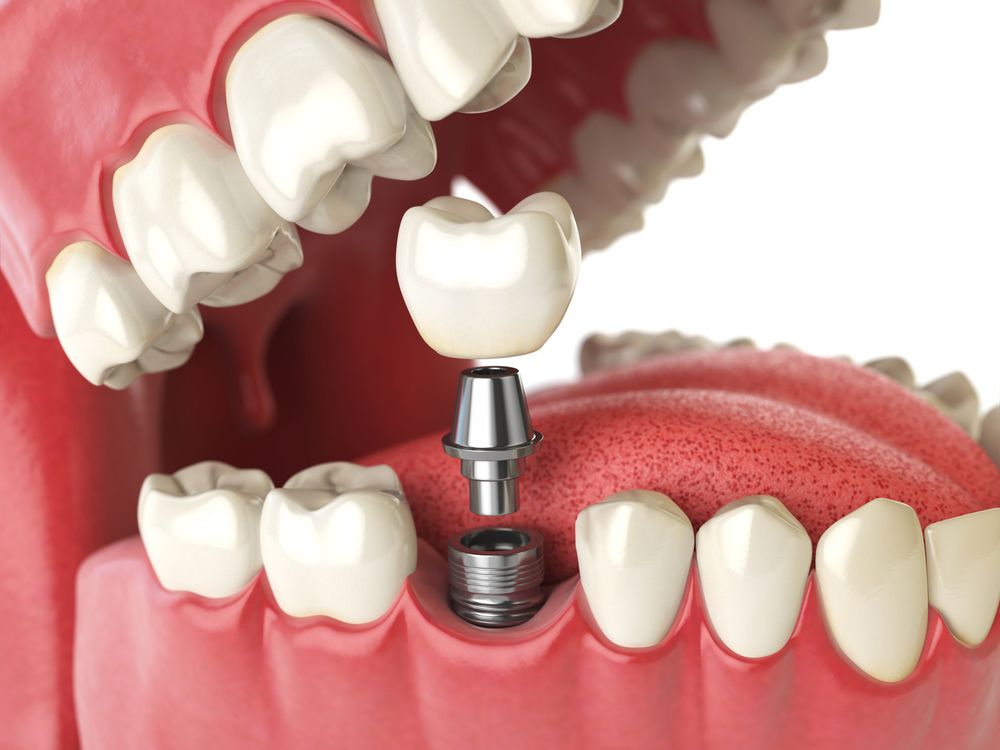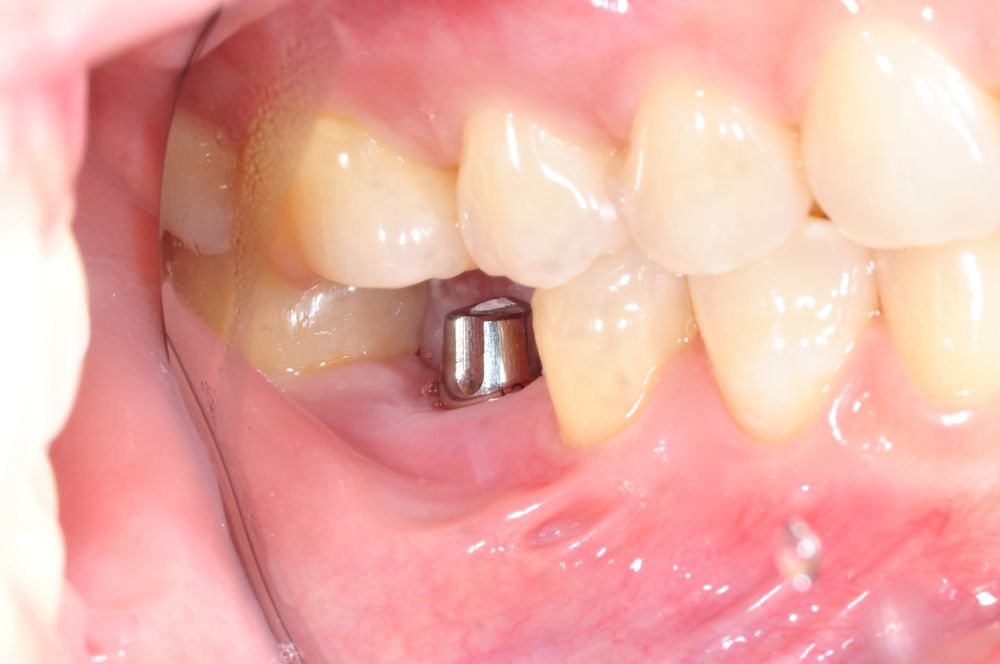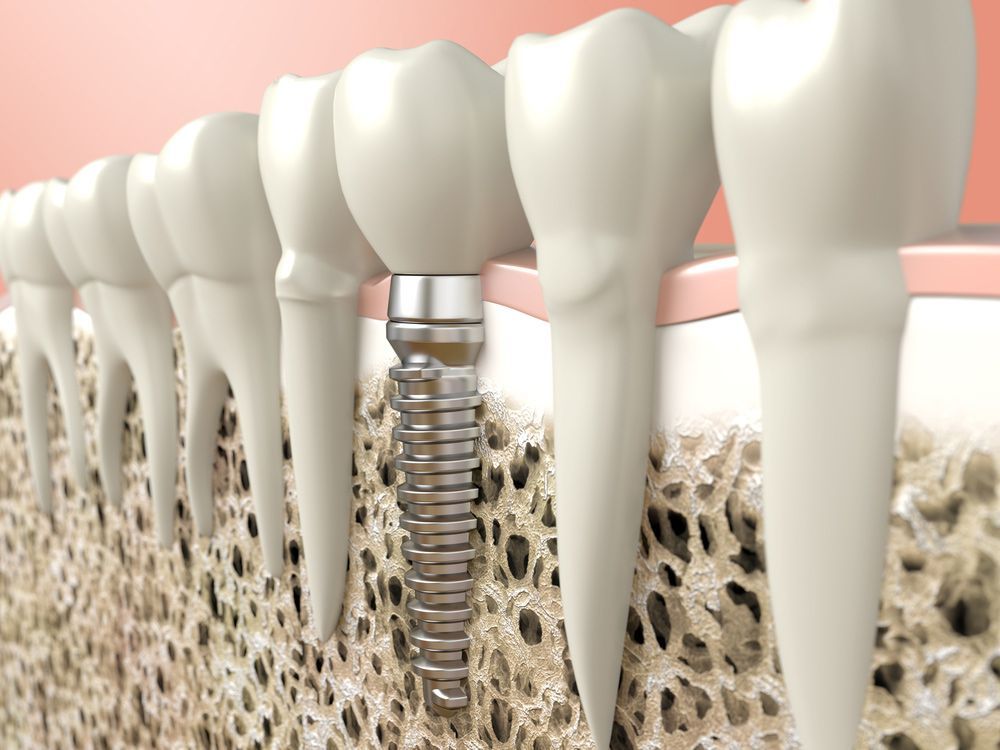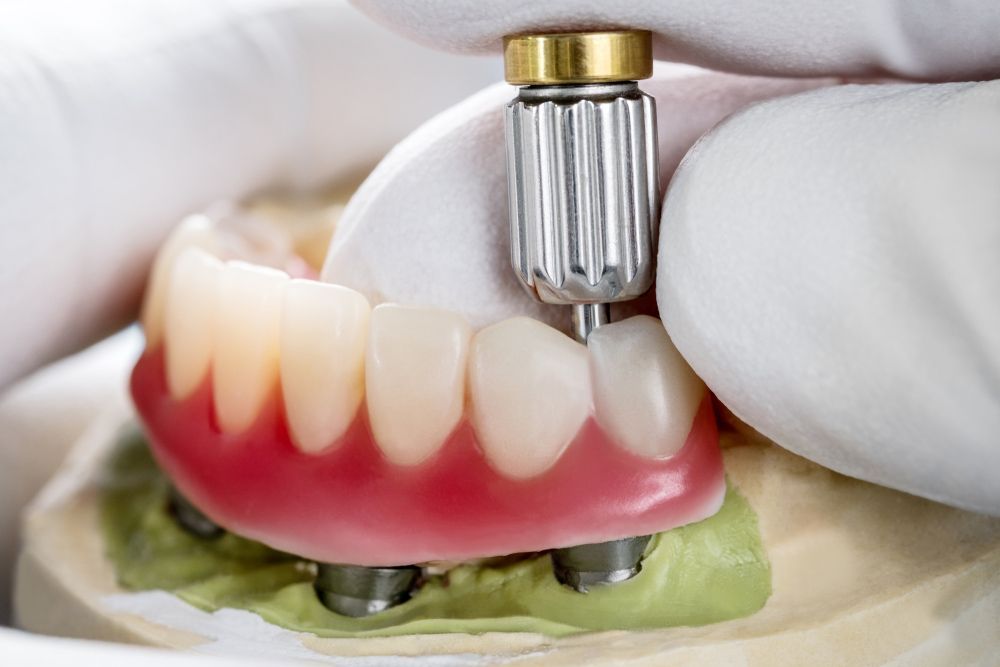Dental Implants in Newcastle
Modern and Effective Tooth Replacement Solution
What Is a Dental Implant?
Dental implants are essentially screws that are surgically placed into your jawbone and serve as an anchor for porcelain crowns and veneers.
Our dental implants are made from a titanium alloy which is a material that is highly compatible with your jawbone. The biocompatible nature of the screws allows them to fuse to your jawbone and become another functioning element within your mouth.
So - what are the benefits?
- Strong and durable solution.
- The next best thing to healthy and natural teeth.
- Works well with existing healthy teeth.
- Prevents other teeth from shifting positions.
- Made from compatible material.
Take a Look For Yourself
Dental implants are the most popular and effective choice for replacing missing teeth. While most people will only act to replace a missing tooth with visual motivations in mind, there are also a number of physical and health related issues that will remain present if a missing tooth is left unfixed.
Dental implants can repair a damaged smile to give a visually seamless look. An implant will also restore your smile to reduce the health risks associated with missing teeth.
WHAT HAPPENS IN A DENTAL IMPLANT PROCEDURE?
A dental implant procedure is a safe and effective way to replace missing teeth. The process starts with a detailed consultation at our Newcastle practice. During this consult, we ensure our patients are well-informed and comfortable before we book in the procedure.
When the day of your procedure comes, our skilled dental surgeon will administer a local anaesthetic to the area. Once the area is numb, a small incision is made in your gum to access the underlying bone. A special drill is used to prepare the bone where the dental implant will be placed. This involves creating a small hole that will hold the titanium implant, which acts as an artificial root for the new tooth.
After placement, the gum is stitched back up and the process of osseointegration starts. This is where the jawbone naturally grows around the implant, securing it in place. This can take a few months to fully complete. Once healed, you'll return to our practice where a custom-made crown is attached to the implant, providing a natural-looking, functional replacement for your lost tooth.
DOES THE DENTAL IMPLANT PROCEDURE HURT?
At Honeysuckle Dental, your comfort is our priority. Before the dental implant procedure, a local anaesthetic is administered to numb the area, minimising any discomfort. Most patients report that they feel no pain during the procedure itself, only a sensation of pressure. You may experience some discomfort in the days following the procedure, such as minor swelling or tenderness, but this is usually manageable with over-the-counter pain relief and adhering to your post procedure care plan.
DO I NEED TO LOOK AFTER MY DENTAL IMPLANT?
Yes! Just like your natural teeth, dental implants must be cleaned and cared for properly to maintain their appearance and functionality. Without proper care, you can develop soft and hard tissue inflammation around your implants. If left untreated, it can result in the loss of bone and the dental implant. Luckily, by adhering to good oral health practices you can reduce your chance of developing dental problems and keep your smile healthy for years to come.
Make sure you brush your teeth twice a day with a soft-bristled toothbrush and low-abrasive toothpaste, paying special attention to the areas under and around the dental implant. Get into the habit of flossing daily and maintain regular check-ups to keep your dental implant healthy.
BENEFITS OF DENTAL IMPLANTS
There are several benefits of dental implants. Not only do they restore your smile, but they also improve your ability to chew and speak. Because they're designed to look, feel and function like your natural teeth, they provide a confidence boost that other replacement treatments, such as dentures, may not. Dental implants will also preserve your facial structure, preventing bone loss in the jaw. They're a durable, long-lasting solution and, with proper care, can serve you for many years.
WHY CHOOSE HONEYSUCKLE DENTAL
If you’re in need of a dental implant procedure in Newcastle, you can trust the team at Honeysuckle Dental. Our friendly team provides exceptional, personalised dental care in a comfortable, modern clinic environment. With a focus on education and open communication, we strive to ensure our patients fully understand their treatment options and ongoing care requirements. Our dental professionals stay updated with the latest techniques, utilising cutting-edge technology to provide a high standard of care. We will walk you through the entire dental implant procedure from start to finish, answering questions and addressing any concerns your might have.
At Honeysuckle Dental, we take pride in transforming smiles and improving the oral health of the Newcastle community. So, when you choose Honeysuckle Dental, you can rest-assured that your teeth are in great hands.













